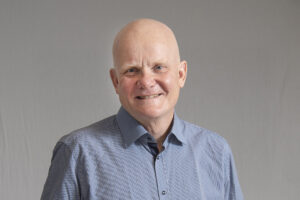The Knowledge Foundation’s Expertkompetens programme has been a tool for life-long learning in the business sector for more than 20 years. Short, modular courses at second cycle level enable working professionals to develop their skills.
Expertkompetens – a tool for life-long learning

The higher education institutions and companies co-produce courses
The increasing pace of change in society, driven by new technologies and globalisation, means that the knowledge working professionals gain during their degrees often becomes outdated over the course of their careers. This creates major challenges for companies and employees. Ultimately, it’s about the competitiveness of the business sector and of Sweden itself.
“Knowledge is the engine of the economy, and courses offered as part of the Expertkompetens programme meet these new needs. The programme is more relevant than ever,” says Olle Vogel at the Knowledge Foundation, who was involved in building the programme from the start. “People need to learn new things. The alternative is for companies to sack employees and then employ new ones. This is a throw-away approach that isn’t sustainable.”
Expertkompetens gives higher education institutions and companies an opportunity to develop and implement research-oriented educational activities at an advanced level that meet the competence needs of professionals working in the business sector. The first version of Expertkompetens was launched back in 1998. The programme has developed since then, but the purpose of equipping the business sector with new knowledge and developing employees’ competence remains.
Courses that meet the needs of the business sector
“Expertkompetens enables the higher education institution to identify development needs in the business sector and the underlying societal challenges. But it’s also a great way of capturing the knowledge that has developed in the companies themselves. More and more knowledge will be produced in the business sector, and sometimes academia is lagging in this respect. In AI and robotics, for example, it’s more Google and Amazon that are leading developments in research, not higher education institutions and universities,” says Olle Vogel.
In 2020 the Knowledge Foundation accepted several applications in the programme:
- “Expert competence in sustainable and digitalised production – ExSus”, University West
- “SE – Value creation through research-based education in the service sector”, Karlstad University
- “Data-driven service development: advanced training for professionals”, University of Borås
- “Data analytics and service innovation based on artificial intelligence (MAISTR)”, Halmstad University
- “WISER – Digital transformation and industrial excellence”, University of Skövde
“Previous projects have mainly involved IT and Industry 4.0. 2020 saw programmes in services also becoming important. Because many companies’ offerings now tend to also include services, this reflects a general trend.”
The educational activities are often short modular courses taught remotely.
“During the pandemic in 2020 we clearly saw that higher education institutions with experience of Expertkompetens found it easier to convert their courses to online learning,” Olle Vogel points out.
The programme has also attracted international attention. When the European Commission identified best practice in competence development, Expertkompetens was highlighted as a role model. As he leaves the Knowledge Foundation in 2021, Olle Vogel can look back on positive development and good results.
Recipe for success
What is the most important thing if you want an Expertkompetens project to succeed?
“It’s important that the higher education institution and the company put themselves out there. The companies need to obtain valuable and relevant competence development but it’s also important that the higher education institution gets something in the form of new knowledge that is important for their research and education. That’s what makes it sustainable.”

